Fact-Finding Reports
To apply for future practicum projects and to learn about the Human Rights Advocacy in Action Practicum, click here.
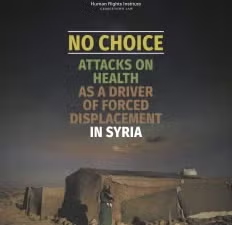
Students in Georgetown Law’s Human Rights Fact-Finding Practicum conducted interviews over the course of the 2020-2021 academic year with individuals who had been displaced as a result of attacks on healthcare and generalized violence, as well as with legal and subject-matter experts on the conflict in Syria.
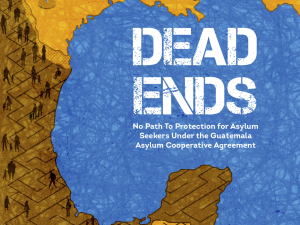
In 2020-2021, the HRI Fact-Finding Project investigated the legality of the Guatemala ACA and its impact on the human rights of asylum seekers.
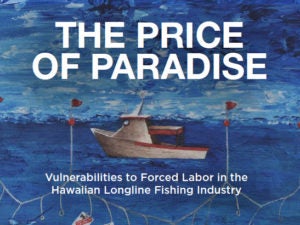
In 2018-2019, the HRI Fact-Finding Project investigated forced labor among foreign fishermen in the Hawaii longline fishing industry. For a screen-reader accessible version of this report, please contact HRI's Dash-Muse Fellow.

In 2017-2018, the HRI Fact-Finding Project investigated cycles of violence and discrimination in against lesbian, gay, bisexual, and transgender (LGBT) individuals in Guyana. For a screen-reader accessible version of this report, please contact HRI's Dash-Muse Fellow.
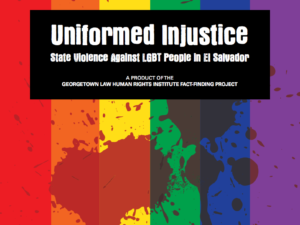
In 2016-2017, the HRI Fact-Finding Project investigated institutional violence targeting lesbian, gay, bisexual, and transgender (LGBT) individuals in El Salvador.
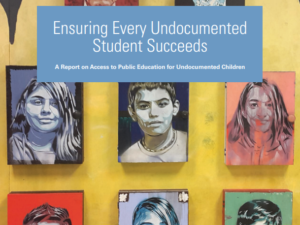
In 2015-2016, the HRI Fact-Finding Project and practicum course examined the right to education and access to public education for undocumented immigrant children in the United States.
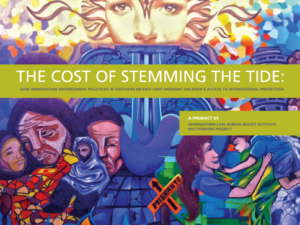
In 2014-2015, the HRI Fact-Finding Project and practicum course examined the the impact of immigration enforcement practices in Southern Mexico on migrant children's access to international protection.
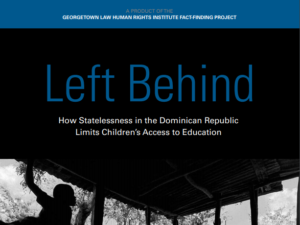
In 2013-2014, the HRI Fact-Finding Project and practicum course examined how statelessness in the Dominican Republic limits children's access to education.
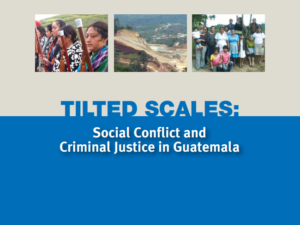
In 2013, HRI published a report on social conflict and criminal justice in Guatemala following joint research and fact-finding with the American Bar Association's Center for Human Rights and the Robert F. Kennedy Center for Justice & Human Rights.
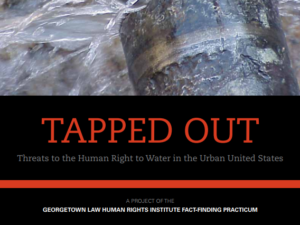
In 2012-2013, the HRI Fact-Finding Project and practicum course examined the human right to water in marginalized communities, including in Detroit and Boston.
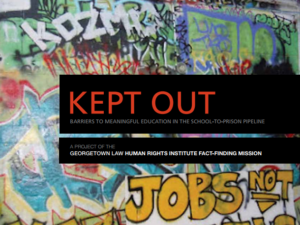
In 2011-2012, the HRI Fact-Finding Project and practicum course examined the right to education of children in the United States in conflict with the law through fieldwork in Los Angeles.
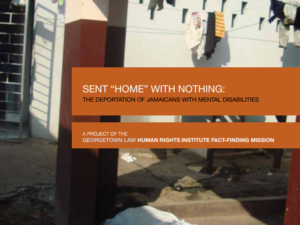
In 2011-2011, the researchers visited Jamaica and conducted more than 50 interviews with deported persons, mental health professionals, civil society representatives, and government officials.
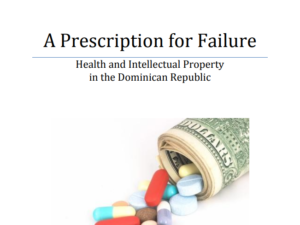
In 2009-2010, researchers investigated the impact of of the DR-CAFTA trade agreement and intellectual property protections on access to affordable medicines in the Dominican Republic.
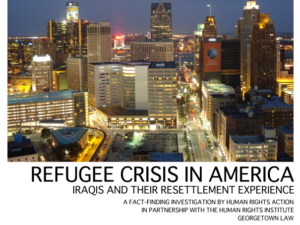
In 2008-2009, researchers examined and assessed the United States' policies, practices, and legal framework with regard to the resettlement of Iraqi refugees though interviews in Washington, D.C., Detroit, San Diego, and Amman, Jordan.
In 2008, researchers traveled to Haiti to document the experiences of HIV-positive spouses, children, parents, and siblings of U.S. citizens or Lawful Permanent Residents (LPRs) affected by the "HIV bar."
In 2007, researchers examined the rise of gangs in Guatemala and the United States and assessed the anti-gang strategies in each country, compared the relative successes and failures, and offered recommendations.
In 2006, researchers investigated the the unintended consequences of counter-terror policies and the material support bar on Colombian refugees.
